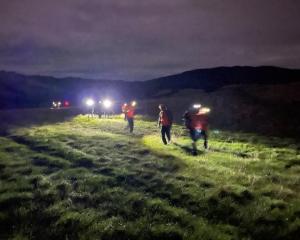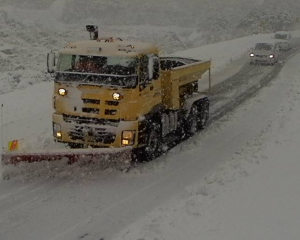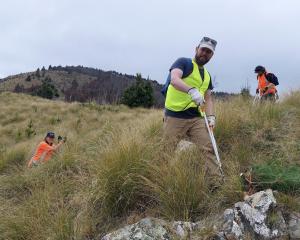The global financial downturn has begun to bite in the south.
The Dongwha Patinna fibreboard plant south of Mataura has had two one-week shutdowns in the past four months because of a decrease in orders, and another possible week-long closure could be on the cards, general manager Shaun Cawood said yesterday.
The plant produces fibreboard for the domestic and overseas markets, including Asia and the United States. However, orders had slowed, prompting the temporary shutdowns - the most recent of which was two weeks ago, Mr Cawood said.
‘‘It's just the nature of the current economic environment. It's the reality of the global economy,'' Mr Cawood said.
The plant usually produced 170,000 cubic metres of fibreboard annually, but the forecast for this year would be down on that figure, he said.
It was possible there would be another week-long shutdown of the plant late next month, he said.
‘‘This downturn is deeper and longer than we've experienced in our 10 years of trading,'' he said.
The plant employs 106 staff. Workers rostered on during the weeks the shutdown took place were given the option to take annual leave. A lot of the workers had a high number of annual leave days in reserve, he said.
However, there were some positive indicators for the future, with the exchange rate falling, some costs of ingredients used in the resin used in fibreboard manufacture decreasing, and shipping costs also falling, he said.
‘‘Those costs have come down but market demand had declined, but we've got some positives to offset that as well,'' Mr Cawood said.
Other Eastern Southland timber businesses spoken to by The Ensign this week also reported demand for their products had slowed.
Mataura's Ngahere Sawmilling Company general manager Stephen Coyle said his company exported timber to countries including China, Vietnam and southeast Asia and a lot of that timber was reexported as products including furniture.
The United States and Europe were major buyers of those products, but, with the global credit crunch, demand had slowed.
While the business was ‘‘ticking along'', orders from Asia had slowed, he said.
The drop in exchange rates and competitive shipping costs were ‘‘quite helpful'' but it was difficult to get the volume of orders the company had in the past, he said. "There is still product moving but not at the level it was a year ago,'' Mr Coyle said.
While the domestic market was still ‘‘pretty good'' it had slowed too, he said. ‘‘America's economy has got to start coming right before it flows on to Asia and then on to New Zealand,'' he said.
Tapanui-based Stuart Timber managing director Roger Stuart said his company mainly supplied product to the domestic market and while business was ‘‘not too bad'' it was not quite as good as this time last year.
The company produced treated products, weatherboard and decking. The company was down about 10 per cent in revenue on this time last year, Mr Stuart said.
While the number of orders was about the same as this time last year, the size of orders had decreased, he said. The company planned to diversify and export more product next year, he said.
That decision was prompted partly by the company having extra capacity and because it appeared New Zealand's economic recovery would be export-led, he said.
The company is also producing a new product called microshades which is treated pine impregnated with iron oxide. The colour was ‘‘pressurised into the wood,'' Mr Stuart said. That product was proving to be popular.
‘‘Those niche type things are the way forward for us,'' he said.












